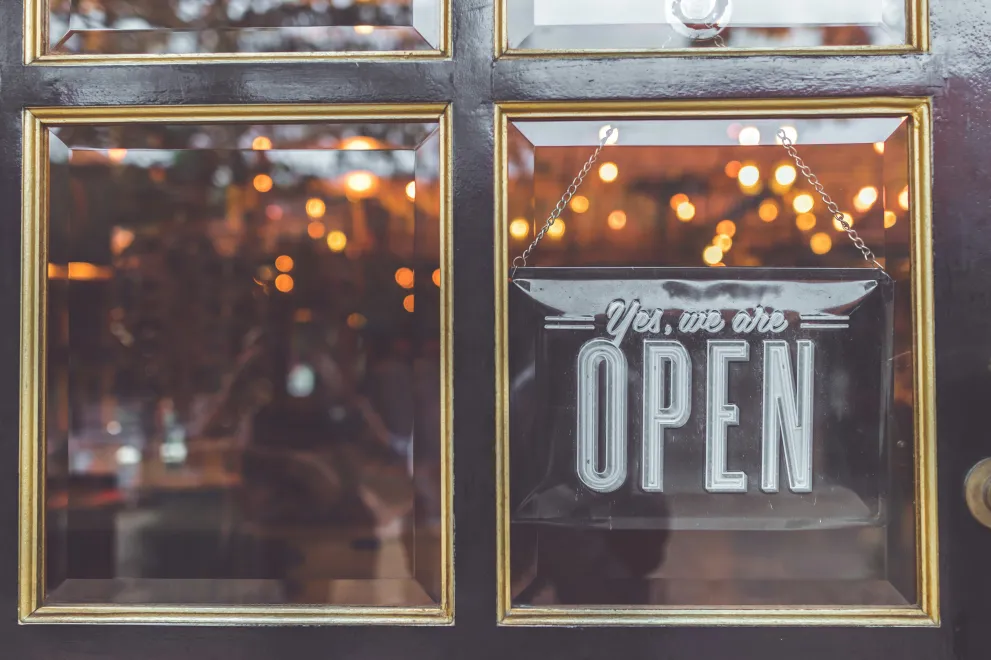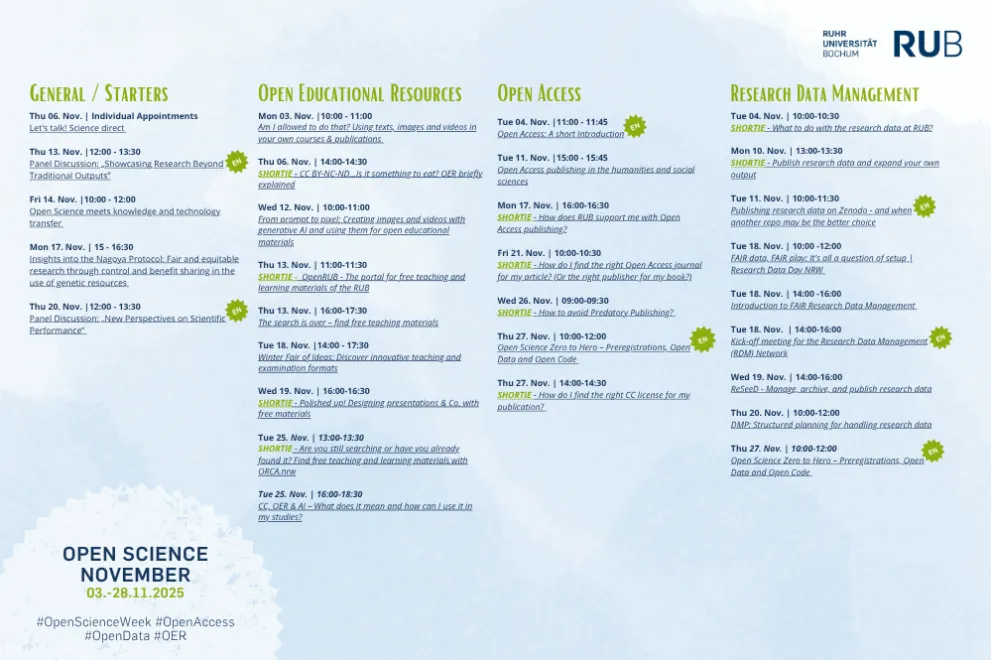
Open Science Month
Sharing scientific knowledge, research steps and results, or educational materials - Open Science encompasses many measures and practices to make knowledge and data accessible to everyone.
Our formats:
- (Short) Introductions
- Coffee Lectures
- Workshops
- Expert Insights
- Networking Meetings
Target group:
Researchers, teachers and students of Ruhr University, partners of the European UNIC university network and interested parties are invited to participate in our Open Science Month. This Month offers various formats - both for beginners and experts interested in the topic of Open Science.
Open Science Month
Below you will find the programme for the Open Science November 2025:
About the Open Science Month
The Open Science Month takes place once a year at Ruhr University Bochum: Get information on Open Access, Open Data and Open Educational Resources and learn how to publish your publication as Open Access and share your research data or teaching materials with the community. Take the opportunity to discuss current developments and challenges in the Open Science community with experts and network with other Open Science enthusiasts.
You can find more information on the topic of Open Science in our open Moodle Course.
Contact
The Open Science Month is organized by the Open Science Working Group of Ruhr University Bochum. If you have any questions about the event, please contact: arbeitsgruppe-openscience@ruhr-uni-bochum.de

